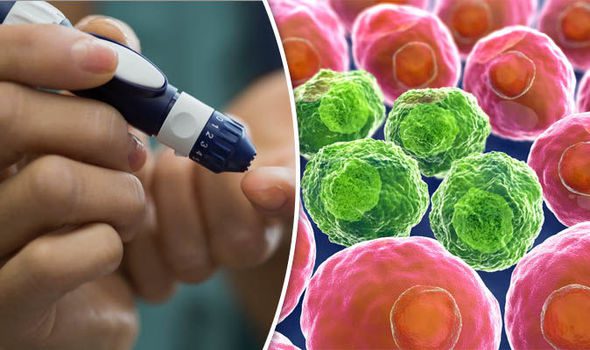Kempner’s Rice Diet program was initiated at Duke University in Durham, North Carolina in 1939 and this unique rice and sugar diet was curing diabetes throughout the 1940s, but you are likely to think that is impossible. Kempner’s therapeutic approach involved a regimen of white rice, fruit, juice, and sugar, but was initially exclusively reserved for severely ill patients.
Surpassing the effectiveness of pharmaceutical drugs and surgical interventions, the Rice Diet demonstrated remarkable benefits for chronic conditions such as coronary artery disease, heart and kidney failure, hypertension, diabetes, arthritis, and obesity.
Initially, the Rice Diet was administered for short durations and closely monitored due to concerns about potential nutritional deficiencies. However, subsequent research confirmed the safety and nutritional adequacy of the diet for the majority of patients.
A significant breakthrough occurred unintentionally when one of Dr. Kempner’s patients, a 33-year-old woman from North Carolina suffering from chronic glomerulonephritis (kidney disease) and papilledema (eye disease), unintentionally deviated from the prescribed instructions. Due to Dr. Kempner’s pronounced German accent, she misinterpreted his directive to return in two weeks, and instead, returned after two months. To everyone’s surprise, she displayed no signs of nutritional deficiency and instead exhibited robust health. Remarkable improvements were observed, including a dramatic reduction in blood pressure from 190/120 to 124/84 mmHg, resolution of eye damage (retinal hemorrhages and papilledema), and a noticeable decrease in heart size.
Following this incident, Dr. Kempner extended the treatment duration for his patients and expanded the indications beyond serious conditions such as glomerulonephritis and malignant hypertension. The diet was also utilized for patients with less severe ailments such as routine hypertension (160/100 mmHg), headaches, chronic fatigue, chest pains, edema, xanthoma, pseudo tumor cerebri, and psoriasis.
An impressive 93% of patients with elevated cholesterol levels experienced a significant average reduction from 273 mg/dL to 177 mg/dL after undergoing the Rice Diet. These cholesterol reductions surpassed those typically achieved by potent statin drugs, all without the associated costs and risks. Additionally, Dr. Kempner’s findings demonstrated the positive impact of a high-carbohydrate diet on blood sugar levels, leading to the resolution of type-2 diabetes.
The Rice Diet is primarily centered around the consumption of dry rice, ranging from 250 to 350 grams per day. Any type of rice is permissible as long as it is free from milk or salt. The rice is either boiled or steamed in plain water or fruit juice, without the addition of salt, milk, or fat. (One cup of dry white rice weighs approximately 200 grams and provides around 13 grams of protein, 150 grams of carbohydrates, 1 gram of fat, and 700 calories.)
The Rice Diet
- Consume dry rice of 250 to 350 grams daily as the foundation of the diet. Use any type of rice without milk or salt. Boil or steam the rice in plain water or fruit juice, without adding salt, milk, or fat. (One cup of dry white rice weighs approximately 200 grams and provides around 13 grams of protein, 150 grams of carbohydrates, 1 gram of fat, and 700 calories.)
- Aim for a daily calorie intake of 2,000 to 2,400 calories. Adjust the intake based on the individual’s condition; increase calories for underweight individuals and decrease for those who are overweight.
- Include fruits and fruit juices in the diet.
- Dried fruits are allowed as long as no additives other than sugar are present.
- Use white sugar as desired (ad libitum). On average, patients consume about 100 grams daily (400 calories), but if necessary to maintain body weight, up to 500 grams (2000 calories) can be used.
- Avoid avocados, dates, and nuts.
- Exclude tomato and vegetable juices from the diet.
- Supplement the diet with the following vitamins: 5,000 units of vitamin A, 1,000 units of vitamin D, 5 mg of thiamine chloride, 5 mg of riboflavin, 25 mg of niacinamide, and 2 mg of calcium pantothenate. No signs of vitamin deficiency were observed in Rice Diet patients during a five-month treatment period (epithelial, neural, or metabolic).
- Allow approximately two months for adaptation to the diet.
- Encourage regular exercise, while bed rest is only recommended for severe conditions.
- Limit water intake to less than 1.5 liters (6 cups) per day in severely ill patients to prevent water intoxication and electrolyte imbalances.
- Note that some patients with kidney disease may not tolerate the diet due to mineral retention issues.
Typically, the diet comprises a daily calorie intake of 2,000 to 2,400 calories, although this may vary depending on the patient’s specific condition. Underweight individuals may be provided with a higher calorie intake, while the opposite applies to those who are overweight. Consumption of fruits and fruit juices is permitted, while dried fruits are allowed as long as no additives other than sugar are included. White sugar may be consumed ad libitum, with an average daily intake of about 100 grams (400 calories). In cases where maintaining body weight is necessary, up to 500 grams (2000 calories) of sugar may be consumed.
Certain restrictions apply to the diet, including the exclusion of avocados, dates, nuts, tomato juices, and vegetable juices. Supplementary vitamins are incorporated into the regimen, including 5,000 units of vitamin A, 1,000 units of vitamin D, 5 mg of thiamine chloride, 5 mg of riboflavin, 25 mg of niacinamide, and 2 mg of calcium pantothenate. Notably, none of the patients undergoing the Rice Diet for five months displayed any signs of vitamin deficiency, be it epithelial, neural, or metabolic.
Adaptation to the diet typically takes approximately two months, during which exercise is encouraged. Bed rest is only advised for severe conditions. Water intake may be restricted to less than 1.5 liters (6 cups) per day for severely ill patients to prevent water intoxication and electrolyte imbalances. However, a small number of patients with kidney disease may not tolerate the diet due to their inability to retain minerals.
Once a patient’s health has been restored, small amounts of non-leguminous vegetables, potatoes, lean meat, or fish (prepared without salt or fat) may be added to the diet. However, if these additions result in adverse consequences such as elevated blood pressure, heart enlargement, abnormal EKG changes, or worsening kidney or eye conditions, it is essential to continue with the basic Rice Diet without modifications.
It is crucial for anyone undertaking the Rice Diet to be under the care of a physician proficient in diet therapy. Closer supervision is recommended for patients with more severe health conditions.

